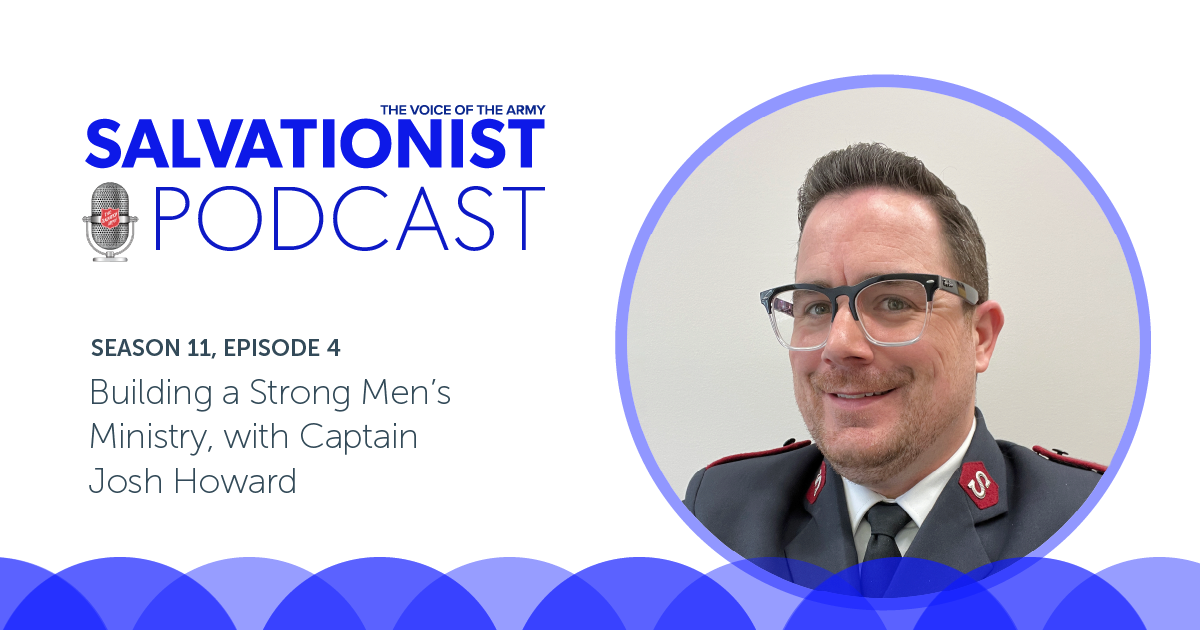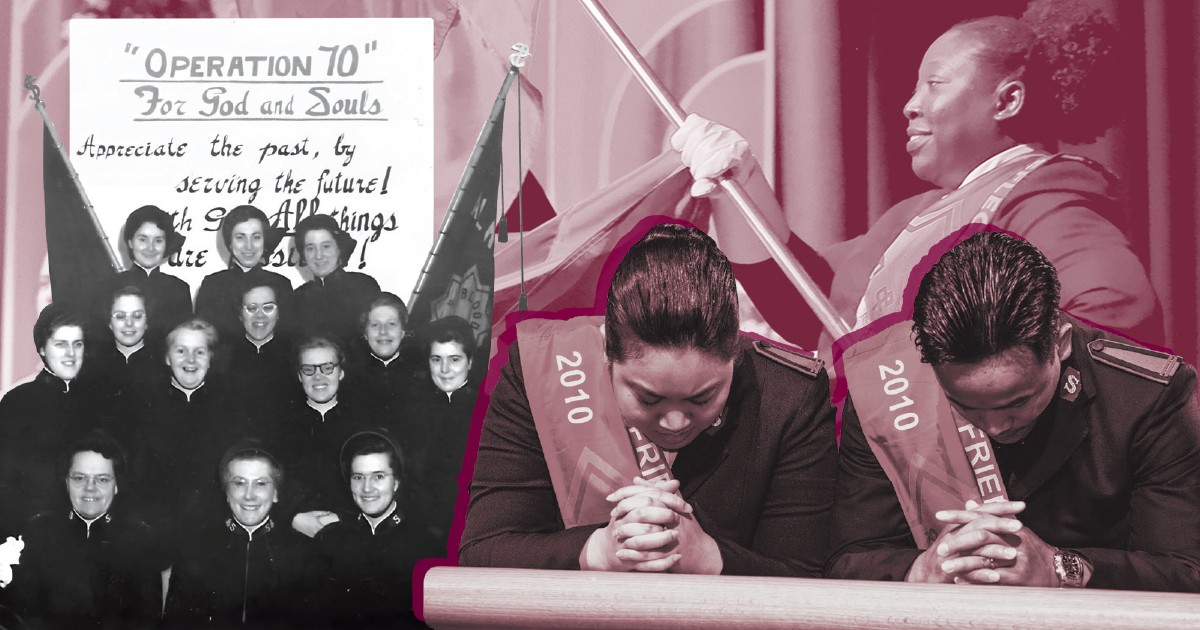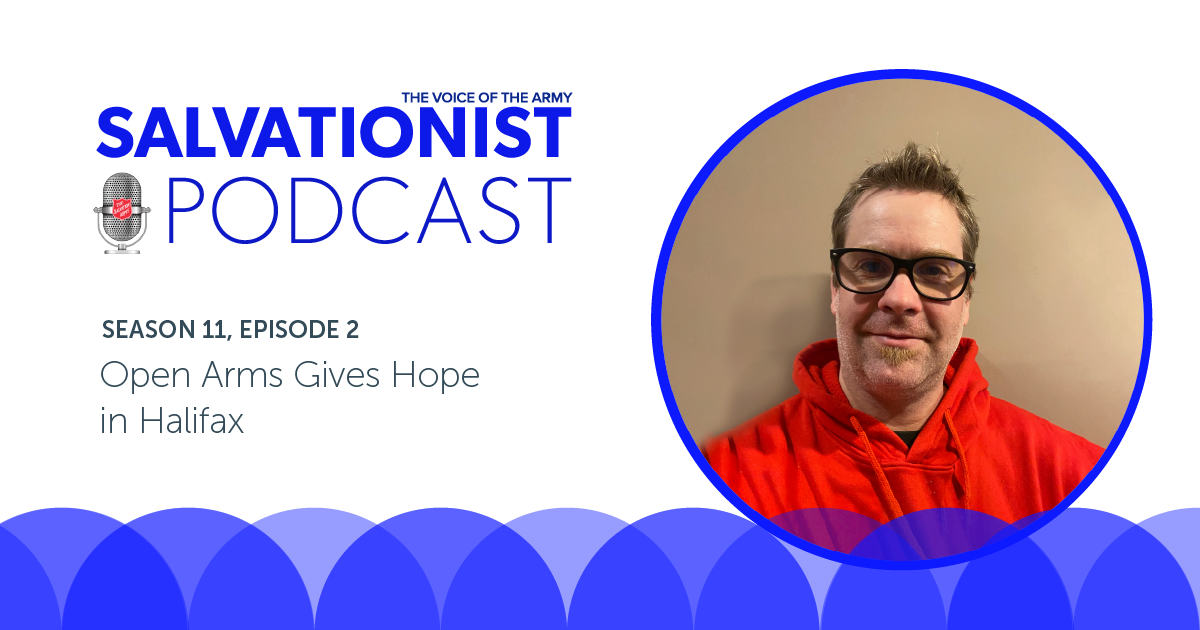A Salvation Army officer for more than 20 years, Major Danielle Strickland is a passionate advocate for the marginalized. Along with various appointments across the Canada and Bermuda Territory, Major Strickland has served as director of social justice in the Australia Southern Territory and is currently the territorial social justice secretary in the U.S.A. Western Territory. Kristin Ostensen, Salvationist associate editor, caught up with Major Strickland after she presented at the Hope in the City Breakfast in Toronto.
Describe your current appointment.
I was charged with the task of starting a social justice department for The Salvation Army in the western United States. We're trying to do three things: inform people about our biblical mandate to do justice and the Army's own history of doing justice; inspire people to be part of the change they want to see in the world; and instigate justice movements and campaigns.
How are you getting Salvationists involved?
We started a Facebook page and an app called SA Justice, which gives people information right where they are. They can even start a campaign—people can sign on and register an event they're doing. I've started a podcast where I have conversations with amazing people from around the world about social justice issues. We've also released a book called Just: Imagine, which is social justice 101 from a Salvation Army perspective.
What progress are you making in fighting trafficking?
We've launched a 10-year plan to combat human trafficking in the U.S.A. Western Territory, so within 10 years, every division will have awareness and training programs, and every employee, every Salvationist will be aware of trafficking and know what to do if they encounter a victim.
We've started prevention and outreach strategies, including a program called Brave, which is for foster-care girls. About 70 to 80 percent of women for sale in the streets of cities across North America come from foster care. So we thought, if exploiters can target them, why can't we?
We have to get to places where vulnerable people are. Human trafficking, by its nature, is invisible; it's meant to be hard to find. And so we have to go out of our way to get in the way, to make a difference there. Already we have three teams from local corps that are doing massage parlour chaplaincy in different divisions in our territory, along with survivor services and recovery. We also have three safe houses, and three more ready to go. We want every division to have at least one.
Not many territories have a specific social justice secretary. How does this position help the Army further its mission?
Social justice requires us to be critical thinkers and to be specific about instigation; somebody needs to take it and run with it. So you have grassroots efforts—which are fantastic—but they happen in isolated places and it's not co-ordinated and, as a result, it's often not resourced and it ends up being un-strategic. Having somebody in this kind of position creates a plan going forward, where people can get on board. And it's not like you have to convince Salvationists to do social justice. It's in us to do; we want to do it. We know something has to change. It's a matter of what to do and how to do it. Somebody needs to help navigate that, and I believe a co-ordinated effort is the best way.
There are many social justice issues that require attention today. How can we get started?
I usually say to people, “What's bugging you right now? What's on your mind?” Single moms, children who don't have lunches—there's usually something right in front of you. It might literally be in your neighbourhood. If you haven't met your neighbours, go meet them—it's not a bad place to start. Go introduce yourself and be of use to your community. If you're passionate about a specific issue—for example, if trafficking is the thing that keeps you up at night—go find someone fighting it and join them. Often, from that place, you'll get a better sense of what you, specifically, can contribute, and that might morph into another ministry. The way will emerge as you do what you're convicted to do.
Describe your current appointment.
I was charged with the task of starting a social justice department for The Salvation Army in the western United States. We're trying to do three things: inform people about our biblical mandate to do justice and the Army's own history of doing justice; inspire people to be part of the change they want to see in the world; and instigate justice movements and campaigns.
How are you getting Salvationists involved?
We started a Facebook page and an app called SA Justice, which gives people information right where they are. They can even start a campaign—people can sign on and register an event they're doing. I've started a podcast where I have conversations with amazing people from around the world about social justice issues. We've also released a book called Just: Imagine, which is social justice 101 from a Salvation Army perspective.
What progress are you making in fighting trafficking?
We've launched a 10-year plan to combat human trafficking in the U.S.A. Western Territory, so within 10 years, every division will have awareness and training programs, and every employee, every Salvationist will be aware of trafficking and know what to do if they encounter a victim.
We've started prevention and outreach strategies, including a program called Brave, which is for foster-care girls. About 70 to 80 percent of women for sale in the streets of cities across North America come from foster care. So we thought, if exploiters can target them, why can't we?
We have to get to places where vulnerable people are. Human trafficking, by its nature, is invisible; it's meant to be hard to find. And so we have to go out of our way to get in the way, to make a difference there. Already we have three teams from local corps that are doing massage parlour chaplaincy in different divisions in our territory, along with survivor services and recovery. We also have three safe houses, and three more ready to go. We want every division to have at least one.
Not many territories have a specific social justice secretary. How does this position help the Army further its mission?
Social justice requires us to be critical thinkers and to be specific about instigation; somebody needs to take it and run with it. So you have grassroots efforts—which are fantastic—but they happen in isolated places and it's not co-ordinated and, as a result, it's often not resourced and it ends up being un-strategic. Having somebody in this kind of position creates a plan going forward, where people can get on board. And it's not like you have to convince Salvationists to do social justice. It's in us to do; we want to do it. We know something has to change. It's a matter of what to do and how to do it. Somebody needs to help navigate that, and I believe a co-ordinated effort is the best way.
There are many social justice issues that require attention today. How can we get started?
I usually say to people, “What's bugging you right now? What's on your mind?” Single moms, children who don't have lunches—there's usually something right in front of you. It might literally be in your neighbourhood. If you haven't met your neighbours, go meet them—it's not a bad place to start. Go introduce yourself and be of use to your community. If you're passionate about a specific issue—for example, if trafficking is the thing that keeps you up at night—go find someone fighting it and join them. Often, from that place, you'll get a better sense of what you, specifically, can contribute, and that might morph into another ministry. The way will emerge as you do what you're convicted to do.










Leave a Comment